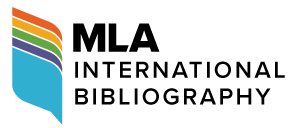Коммуникации
Правильная ссылка на статью:
Дворак Е.Ю., Гринберг Т.Э. Специфика креолизованного текста в рекламных роликах от ВТБ по мотивам произведений русской литературы: «Бесприданница», «Муму» // Филология: научные исследования. 2025. № 4. С. 34-42. DOI: 10.7256/2454-0749.2025.4.74072 EDN: PNOUKD URL: https://nbpublish.com/library_read_article.php?id=74072
Читать статью
Результаты процедуры рецензирования статьи:
|
EDN: PNOUKD

|
Аннотация:
Предметом исследования является структурные, видовые особенности креолизованного текста видеорекламы, основанной на преобразовании сюжетов русской литературы («Бесприданница», «Муму») и их интерпретации в контексте современных экономических реалий. Объектом исследования является креолизованный текст в рекламных роликах банка из цикла: «ВТБ – это классика!». Авторы подробно рассматривают такие аспекты темы, как трансформация исходного кода в креолизованном тексте, подчеркивают его важность, как средства мультимодальной передачи информации, которая усиливает эмоциональное и когнитивное воздействие на аудиторию. Особое внимание уделяется анализу и способам взаимодействия семиотических знаков, (исходя из второй трихотомии Ч. Пирса: иконическому знаку и символу) в рамках креолизованного текста. Подчеркивается их вклад в структуру и общее понимание рекламного послания. Методы исследования включают: семиотический анализ, контент-анализ, систематически изучающие содержания выбранных рекламных видеороликов, выявления типологических, знаковых, визуальных компонентов; культурологический анализ, исследующий интеграцию в рекламу сюжетов русской литературы, их воздействие на аудиторию; мультимодальный анализ, рассматривающий взаимодействие текстовых, аудиовизуальных элементов для построения многослойных сообщений. Основными выводами проведенного исследования является доказательство тождественности понятий креолизованного и поликодового текста за счет интеграции различных медийных форматов (языковых, аудиовизуальных), что делает его универсальным в передаче многослойных сообщений, позволяет эффективно использовать в рекламно-коммуникационных целях. Данная комбинация создает сообщение с несколькими скрытыми слоями, что усиливает эмоциональное воздействие рекламы, делает ее более убедительной. Особым вкладом авторов в исследование темы является выделение двуплановости композиции в роликах («Бесприданница», «Муму»), что формирует культурно-релевантные ассоциации с брендом. Соответственно, использование в видеорекламе сюжетов из русской классики увеличивает степень доверия аудитории к компании. Новизна исследования заключается в выявления семиотических связей внутри креолизованного текста, создание на их основе рекламного пространства, в котором происходит трансформация иконических и символических знаков, что ранее не исследовалось. Взаимодействие исходного сюжета с современностью внутри семиотических связей формирует сложные, увлекательные нарративы, усиливая интерес к рекламе и создавая более привлекательный имидж банка в глазах потребителя.
Ключевые слова:
креолизованный текст, поликодовый текст, рекламный видеоролик, реклама, символ, иконический знак, семиотические связи, двуплановость, креолизация, семиотика
Abstract:
The subject of the study is the structural, species features of the creolized text of video advertising based on the transformation of plots of Russian literature ("Dowry", "Mumu") and their interpretation in the context of modern economic realities. The object of the study is the creolized text in the bank's commercials from the cycle: "VTB is a classic!" The authors consider in detail such aspects of the topic as the transformation of the source code in the creolized text, emphasize its importance as a means of multimodal transmission of information that enhances the emotional and cognitive impact on the audience. Particular attention is paid to the analysis and methods of interaction of semiotic signs (based on the second trichotomy of Charles Pierce: iconic sign and symbol) within the creolized text. Their contribution to the structure and general understanding of the advertising message is emphasized. Research methods include: semiotic analysis, content analysis, systematically studying the content of the selected advertising videos, identifying typological, iconic, visual components; cultural analysis, which studies the integration of Russian literary plots into advertising, their impact on the audience; multimodal analysis, which considers the interaction of textual and audiovisual elements to build multilayered messages. The main conclusions of the study are the proof of the identity of the concepts of creolized and polycode text due to the integration of various media formats (linguistic, audiovisual), which makes it universal in transmitting multilayered messages, and allows it to be effectively used for advertising and communication purposes. This combination creates a message with several hidden layers, which enhances the emotional impact of advertising and makes it more convincing. A special contribution of the authors to the research of the topic is the highlighting of the two-dimensionality of the composition in the videos ("Dowry", "Mumu"), which forms culturally relevant associations with the brand. Accordingly, the use of plots from Russian classics in video advertising increases the degree of audience trust in the company. The novelty of the study lies in identifying semiotic links within the creolized text, creating on their basis an advertising space in which the transformation of iconic and symbolic signs occurs, which has not been studied before. The interaction of the original plot with modernity within semiotic links forms complex, fascinating narratives, increasing interest in advertising and creating a more attractive image of the bank in the eyes of the consumer.
Keywords:
semiotic connections, iconic sign, symbol, advertising, promotional video, polycode text, creolized text, ambiguity, creolization, semiotics
 Статья опубликована с лицензией Creative Commons Attribution-NonCommercial 4.0 International License (CC BY-NC 4.0) – Лицензия «С указанием авторства – Некоммерческая».
Статья опубликована с лицензией Creative Commons Attribution-NonCommercial 4.0 International License (CC BY-NC 4.0) – Лицензия «С указанием авторства – Некоммерческая». Рус
Рус















 © 1998 – 2025 Nota Bene. Publishing Technologies. NB-Media Ltd.
© 1998 – 2025 Nota Bene. Publishing Technologies. NB-Media Ltd.




